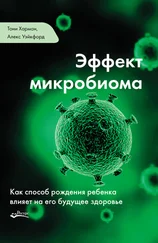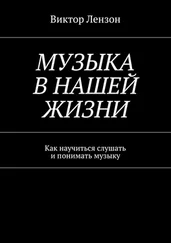Schlaug, G., et al. (2010), ‘From singing to speaking: facilitating recovery from nonfluent aphasia’, Future Neurology , 5 (5), 657–665.
Conklyn, D., et al. (2012), ‘The Effects of Modified Melodic Intonation Therapy on Nonfluent Aphasia: A Pilot Study’, Journal of Speech, Language, and Hearing Research , 55 (5), 1463–1471.
Zipse, L., Norton, A., Marchina, S., and Schlaug, G. (2012), ‘When right is all that is left: plasticity of right-hemisphere tracts in a young aphasic patient’, Annals of the New York Academy of Sciences , 1252, 237–245.
Stahl, B., et al. (2013), ‘How to engage the right brain hemisphere in aphasics without even singing: evidence for two paths of speech recovery’, Frontiers in Human Neuroscience , 7, 35.
Lai, H.L., and Good, M. (2005), ‘Music improves sleep quality in older adults’, Journal of Advanced Nursing, 49 (3), 234–244. Cappuccio, F.P., et al. (2011), ‘Sleep duration predicts cardiovascular outcomes: a systematic review and meta-analysis of prospective studies’, European Heart Journal , 32 (12), 1484–1492.
Bradt, J., Dileo, C., Grocke, D., and Magill, L. (2011), ‘Music interventions for improving psychological and physical outcomes in cancer patients’, Cochrane Database of Systematic Reviews, Issue 8. Art. No.: CD006911. DOI: 10.1002/14651858.CD006911.pub2.
Bradt, J., and Dileo, C. (2009), ‘Music for stress and anxiety reduction in coronary heart disease patients’, Cochrane Database of Systematic Reviews, Issue 2. Art. No.: CD006577. DOI: 10.1002/14651858.CD006577.pub2.
Cucherat, M. (2007), ‘Quantitative relationship between resting heart rate reduction and magnitude of clinical benefits in post-myocardial infarction: a meta-regression of randomized clinical trials’, European Heart Journal, 28 (24), 3012–3019.
Lane, D. (2011), ‘Music as Medicine, Music and the Brain’ (podcast), available at: http://www.loc.gov/podcasts/musicandthebrain/podcast_lane.html.
Lin, S.-T. et al. (2011), ‘Mental Health Implications of Music: Insight from Neuroscientific and Clinical Studies’, Harvard Review of Psychiatry , 19 (1), 34–46.
Maratos, A., Crawford, M.J., and Procter, S. (2011), ‘Music therapy for depression: it seems to work, but how?’, British Journal of Psychiatry , 199 (2), 92–93.
Mössler, K., Chen, X., Heldal, T.O., and Gold, C. (2011), ‘Music therapy for people with schizophrenia and schizophrenia-like disorders’, Cochrane Database of Systematic Reviews, Issue 12. Art. No.: CD004025. DOI: 10.1002/14651858.CD004025.pub3.
Vink, A.C., Bruinsma, M.S., and Scholten, R.J.P.M. (2003), ‘Music therapy for people with dementia’, Cochrane Database of Systematic Reviews, Issue 4. Art. No.: CD003477. DOI: 10.1002/14651858.CD003477.pub2.
Golda, C., Solli, H.P., Krüger, V., and Lie, S.A. (2009), ‘Dose-response relationship in music therapy for people with serious mental disorders: Systematic review and meta-analysis’, Clinical Psychology Review , 29 (3), 193–207.
Clair, A. (2011), ‘Music Therapy, Alzheimer’s and Post-Traumatic Stress’ (podcast), available at: http://www.loc.gov/podcasts/musicandthebrain/podcast_clair.html.
Maratos, A., Crawford, M.J., and Procter, S. (2011), ‘Music therapy for depression: it seems to work, but how?’, British Journal of Psychiatry , 199 (2), 92–3. DeNora, T (2003), Beyond Adorno: Rethinking Music Sociology . Cambridge: Cambridge University Press.
Brandes, V, et al. (2010), ‘Receptive music therapy for the treatment of depression: a proof-of-concept study and prospective controlled clinical trial of efficacy’, Psychotherapy and Psychosomatics , 79 (5), 321–322.
Cuddy, L.L., et al. (2012), ‘Memory for Melodies and Lyrics in Alzheimer’s Disease’, Music Perception , 29 (5) 479–491.
Simmons-Stern, N.R., Budson, A.E., and Ally, B.A. (2010), ‘Music as a memory enhancer in patients with Alzheimer’s disease’, Neuropsychologia , 48 (10), 3164–3167.
Moussard, A., Bigand, E., Belleville, S., and Peretz, I. (2012), ‘Music as an Aid to Learn New Verbal Information in Alzheimer’s Disease’, Music Perception , 29 (5), 521–531.
Guétin, S., et al. (2011), ‘Effect of Music Therapy on Anxiety and Depression in Patients with Alzheimer’s Type Dementia: Randomised, Controlled Study’, Dementia and Geriatric Cognitive Disorders , 28 (1), 36–46.
Clair, A. (2011), ‘Music Therapy, Alzheimer’s and Post-Traumatic Stress’ (podcast), available at: http://www.loc.gov/podcasts/musicandthebrain/podcast_clair.html.
Nair, B., et al. (2010), ‘The effect of Baroque music on behavioural disturbances in patients with dementia’, Australasian Journal on Ageing , 30 (1), 11–15.
Kwekkeboom K.L. (2003), ‘Music versus distraction for procedural pain and anxiety in patients with cancer’, Oncology Nursing Forum , 30 (3), 433–440.
Конец ознакомительного отрывка
Купить книгу
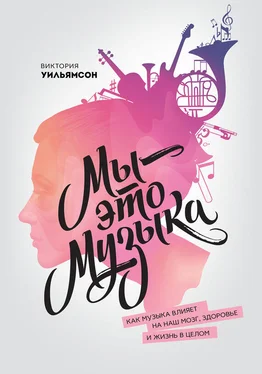

![Виктория Токарева - Тихая музыка за стеной [сборник]](/books/34306/viktoriya-tokareva-tihaya-muzyka-za-stenoj-sbornik-thumb.webp)
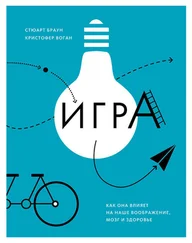

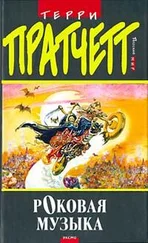
![Аре Бреан - Музыка и мозг [Как музыка влияет на эмоции, здоровье и интеллект]](/books/398841/are-brean-muzyka-i-mozg-kak-muzyka-vliyaet-na-emoc-thumb.webp)
